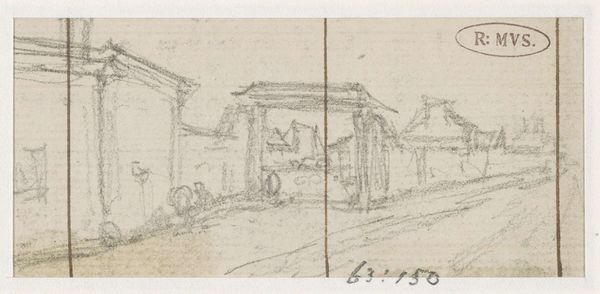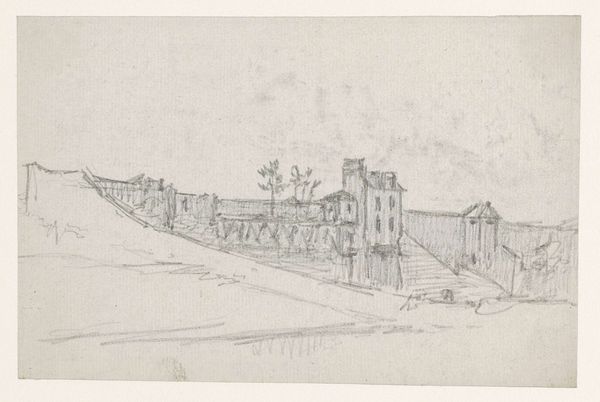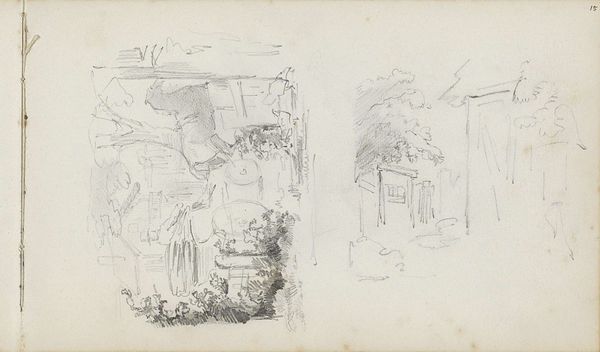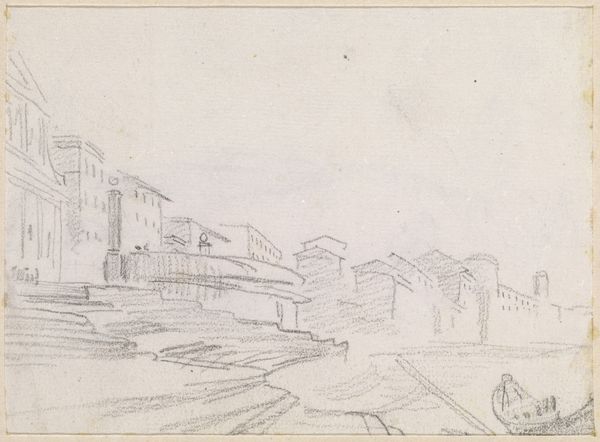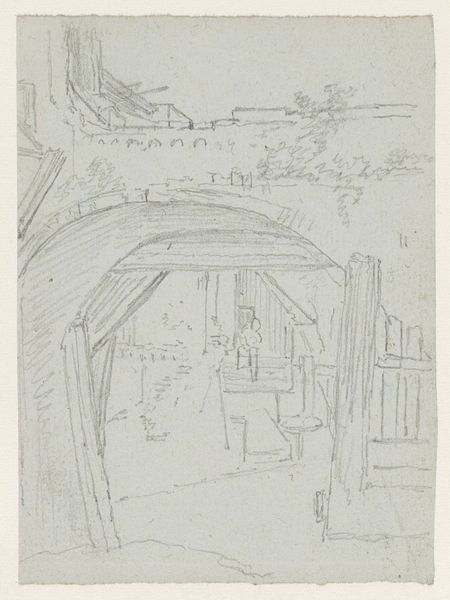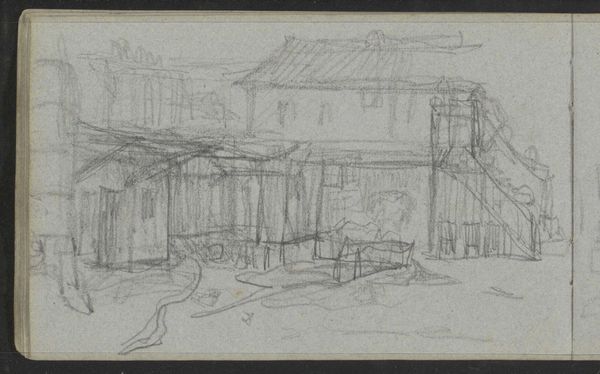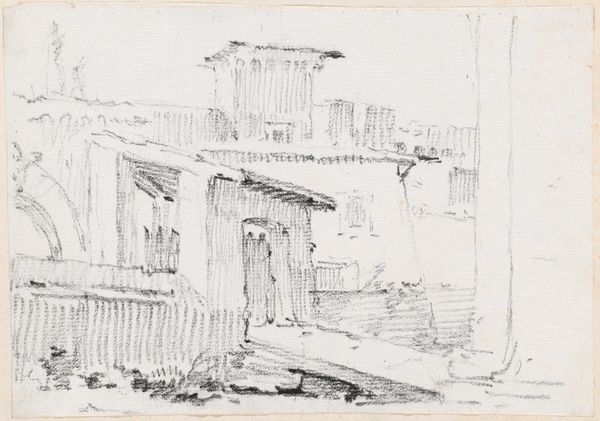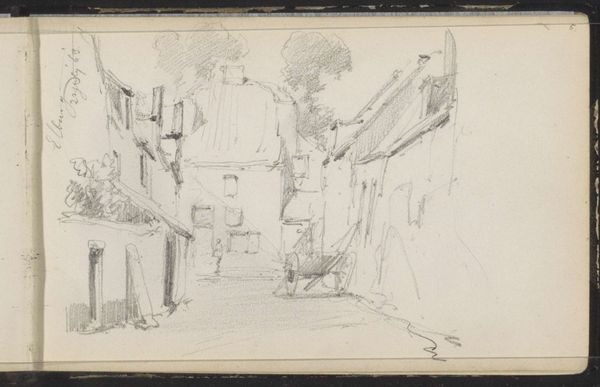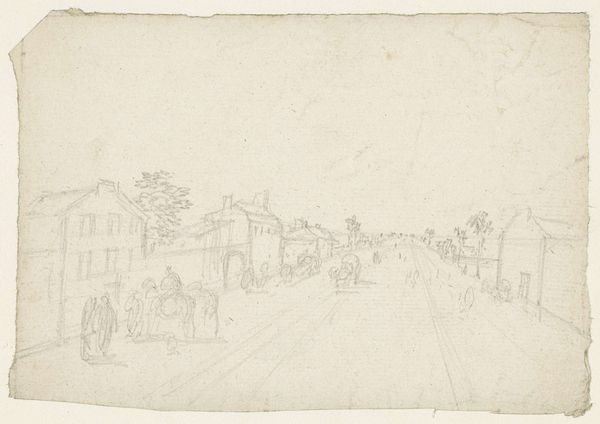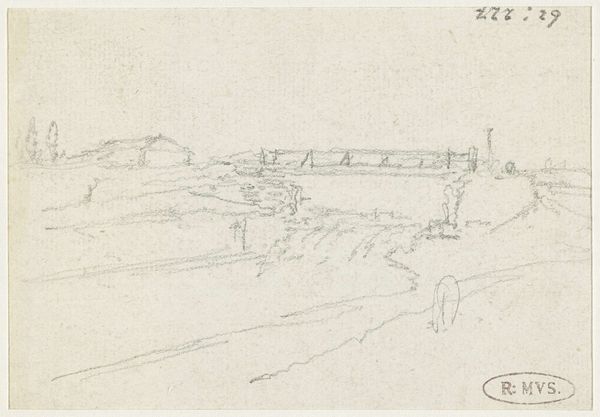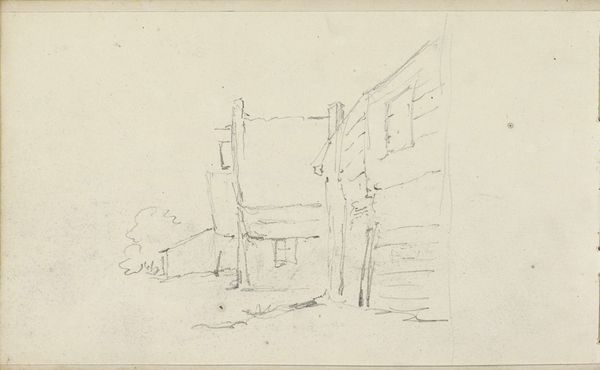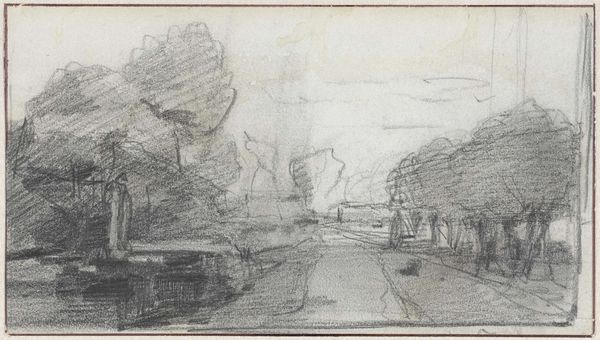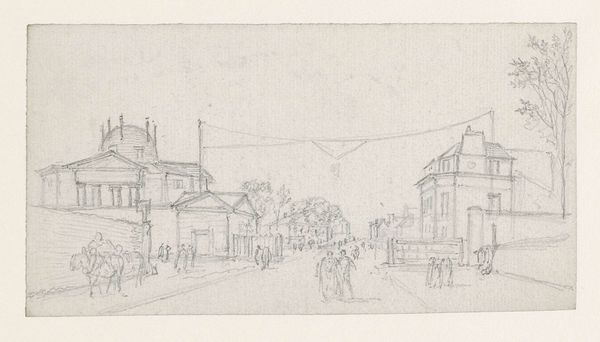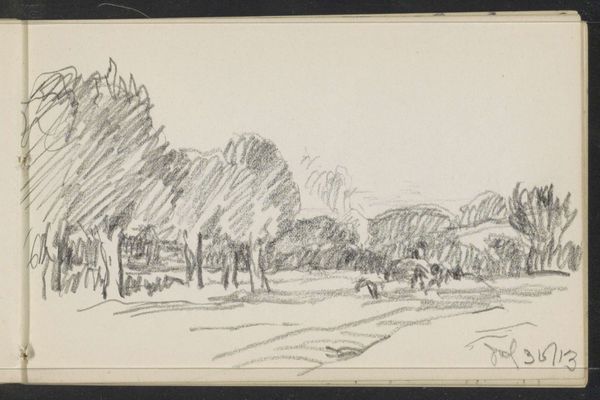
drawing, paper, pencil
#
drawing
#
quirky sketch
#
pen sketch
#
landscape
#
paper
#
personal sketchbook
#
sketchwork
#
ink drawing experimentation
#
pen-ink sketch
#
pencil
#
pen work
#
sketchbook drawing
#
sketchbook art
#
realism
#
initial sketch
Dimensions: height 84 mm, width 108 mm
Copyright: Rijks Museum: Open Domain
Editor: So, here we have "Huizen tussen bomen," or "Houses Among Trees," a sketch attributed to Georges Michel, created sometime between 1773 and 1843, rendered in pencil and ink on paper. It strikes me as a very intimate glimpse, almost like peering into the artist's private sketchbook. What are your initial thoughts on it? Curator: It's tempting to romanticize that "intimate glimpse," but let's think about what landscape sketches represented in that period. The late 18th and early 19th centuries saw growing interest in landscape as a symbol of national identity and a site for leisure. How does this unassuming sketch possibly fit into these larger socio-cultural trends? Editor: I hadn't considered it that way. I suppose the sketch, despite its apparent simplicity, hints at an emerging bourgeois appreciation for rural scenery? A move from the city to be closer to nature? Curator: Precisely. And Michel’s choice of subject – simple houses nestled among trees – what does that evoke? It’s not grand architecture, nor a purely "wild" landscape, is it? It suggests something… Editor:… something cultivated? Like a negotiation between nature and human presence? Maybe this "in-between-ness" reflects broader societal changes? A longing for simplicity amid growing industrialization? Curator: Yes! We see the rising middle class, the influence of Enlightenment ideals championing a return to nature – though filtered through a bourgeois lens. Sketches like this also fueled the growing market for picturesque scenes, easily reproducible and available to a wider public. Think about how images like this, multiplied and distributed, shape perception of "nature" itself. Editor: That's fascinating. I was focused on the artistic process, but it is clear now that the seemingly simple landscape sketch has more historical, social, and cultural implications. Thank you for sharing! Curator: My pleasure. Thinking about art as actively shaped by, and also shaping, broader social currents is key to understanding its power.
Comments
No comments
Be the first to comment and join the conversation on the ultimate creative platform.
